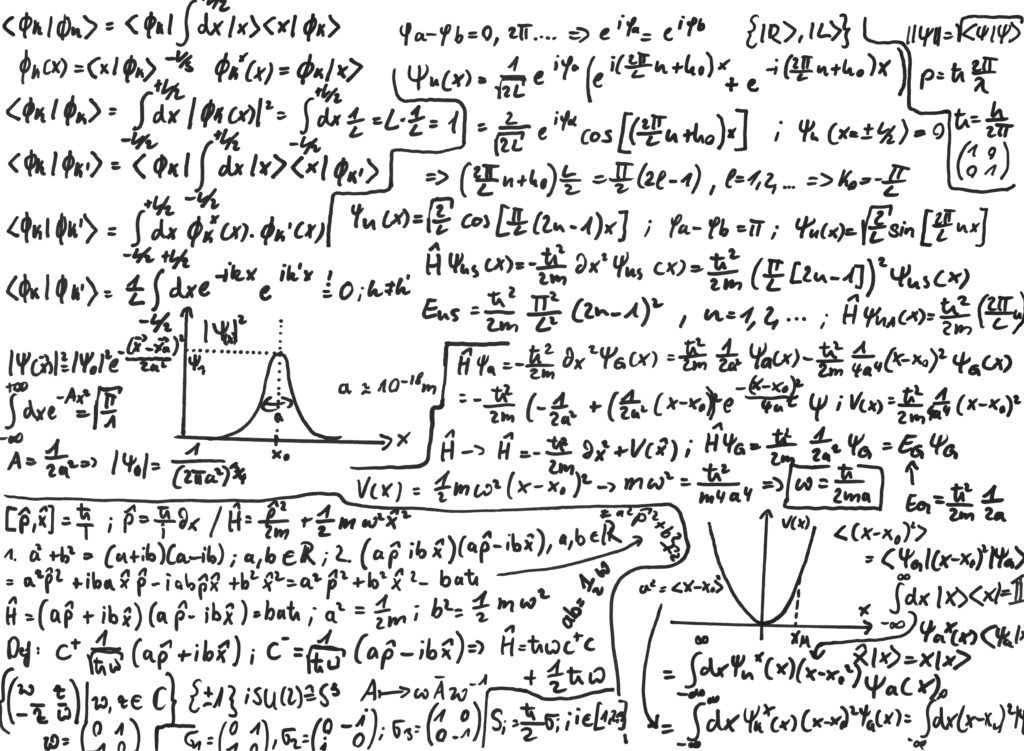The idea behind quantum mechanics goes far beyond merely describing the uncertainty inherent in natural phenomena. In fact, its underlying uncertainty principle has much to teach us about our own digital world — which is quickly moving to a cashless economy.
In 1978, Pakistani mathematician Asghar Quadir published a seminal paper which, at first, garnered little attention. Called Quantum Economics, he argued that quantum mechanics, as a mathematical framework, could be effectively utilized to better understand consumer preferences. It was the first time the two concepts were merged.
In an economy where “consumer behavior depends on infinitely many factors and that the consumer is not aware of any preference until the matter is brought up,” the individual can instead be thought of as both an entity and as a point within Hilbert Space — a vector space greater than two-dimensional Euclidean planes.

Quantum Mechanics in the Economy
It was not until the 1990s that economists first began using quantum mechanics formally to understand markets. Economist Martin Shubik, physicist Martin Schaden, and social scientist Emmanuel Haven started to use quantum formalizations to model the stock market’s uncertainty. This idea, in recent years, has only grown in prominence. In the 2017 book The Evolution of Money, mathematician David Orrell argues that money — especially how it exists today — has dualistic properties. Money combines the properties of ownership and value with abstract uncertainty. It is this incompatibility which leads to often unpredictable behavior. Whereas neoclassical and traditional economics posits that individuals act independently in their economic decisions, quantum economics stresses that everyone is part of an entangled system of complex game theory with an incalculable number of causal chains.
Quantum Economics Meets Emerging Technologies
Many economists who study quantum mechanics as it relates to human behavior have been closely watching the cryptocurrency space. Not only will quantum computing have a significant impact on existing cryptography but it will inevitably push decentralized systems into a new paradigm. With cryptocurrencies, quantum economics finds its most distilled form: a borderless, cashless financial network which operates on trustless mathematical computation. Chance and uncertainty have to be ‘baked-in’ for such networks to operate at capacity. Although quantum computing is often posited as potentially ‘breaking’ cryptographic digital signatures and hash functions, the reality is much more complicated. Most major cryptocurrency projects are already anticipating this seismic shift and have plans to tackle it.
Quantum Mechanics and Cryptocurrency
Quantum computing, despite being years away, is more likely to bring cryptocurrencies to an entirely new paradigm. Issues of scalability and mass-usage would be easily resolved as computational power accelerates. The real limit today is our binary-based world. The end result of this technological breakthrough would be a cashless financial network operating in real-time. Such a global, decentralized system would be able to accurately assess uncertainty and weigh the innumerable inputs present in an economy. The end result would be a trustless ‘super-computer’ not based in any one location — a decentralized global network which would facilitate the free-flow of money like we treat information, today. A quantum-based economy is a long ways away. However, one can be sure that the blockchain sector will certainly play a major role in its inevitable rise. Do you believe that cryptocurrency has much to learn from quantum mechanics? Let us know your comments down below.Disclaimer
In adherence to the Trust Project guidelines, BeInCrypto is committed to unbiased, transparent reporting. This news article aims to provide accurate, timely information. However, readers are advised to verify facts independently and consult with a professional before making any decisions based on this content. Please note that our Terms and Conditions, Privacy Policy, and Disclaimers have been updated.

Advertorial
Advertorial is the universal author name for all the sponsored content provided by BeInCrypto partners. Therefore, these articles, created by third parties for promotional purposes, may not align with BeInCrypto views or opinion. Although we make efforts to verify the credibility of featured projects, these pieces are intended for advertising and should not be regarded as financial advice. Readers are encouraged to conduct independent research (DYOR) and exercise caution. Decisions based on...
Advertorial is the universal author name for all the sponsored content provided by BeInCrypto partners. Therefore, these articles, created by third parties for promotional purposes, may not align with BeInCrypto views or opinion. Although we make efforts to verify the credibility of featured projects, these pieces are intended for advertising and should not be regarded as financial advice. Readers are encouraged to conduct independent research (DYOR) and exercise caution. Decisions based on...
READ FULL BIO
Sponsored
Sponsored
